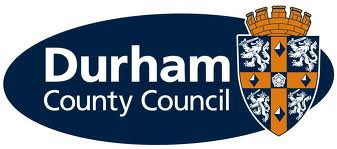Wide-ranging plans to invest more than £112 million in frontline services and major development projects, in County Durham, will be considered next week.
The investments are outlined in Durham County Council’s Medium Term Financial Plan (MTFP), which sets out the authority’s spending plans and priorities for 2021/22 to 2024/25.
Despite the challenging financial climate, which has been exacerbated by the significant economic impact of coronavirus, prudent financial management and robust planning have made investment possible in 2021/22 as the council supports the county’s recovery from the pandemic.
The plans include a further £5 million earmarked for investment in towns and villages to supplement £20 million already available. Each of the council’s 14 Area Action Partnerships (AAP) will receive an additional £300,000 from this funding to spend on initiatives in support of the towns and villages programme.
The plans also include £7 million in Council Tax Support and funding to support vulnerable residents via AAPs. Top-up payments up to £300 for working age households in receipt of its Local Council Tax Reduction Scheme, that still have a bill to pay, will continue. Each AAP will receive £100,000 to assist vulnerable people and community groups in tackling poverty in the ongoing response to the pandemic.
An additional £12 million of revenue spending next year will include more money for roads, fixing potholes and winter maintenance; further climate change initiatives; sprucing up local communities and employing neighbourhood wardens to improve community reassurance; and support for the most vulnerable residents.
The authority is also investing in a significant and ambitious capital programme, with additional schemes worth £88 million added to its Medium Term Financial Plan. This brings the planned total capital programme over the next four years to £484 million. This includes additional investment in leisure facilities, a new social house building programme, further spending on highways and major transport schemes, and schools, including new builds,
Despite central government expectations, the council is resisting pressure to increase council tax by 5 per cent next year and has instead recommended a 2.99 per cent increase. The council faces an uncertain financial future beyond next year, with the Government’s long-awaited Comprehensive Spending Review and Fair Funding Review outcomes delayed by a further year.
Cllr Simon Henig, Leader of Durham County Council, said: “The past year has been extremely challenging for residents, communities and businesses. We have faced many financial and operational challenges. We have adapted the way we work and provided community support across County Durham, protecting frontline services as far as is possible.
“We are now prioritising further investment in these frontline services next year and providing additional grant support to each of our 14 AAPs, to tackle priorities in towns and villages across County Durham.
“Not only are we proposing putting major sums of money into services such as highways and winter maintenance, neighbourhood wardens, leisure and libraries, just as importantly we’re also planning on continuing support specifically aimed at the most vulnerable in society. As well as investments in children’s and adult services, we’re maintaining our Council Tax Reduction and Council Tax Support top-up schemes, which provide higher levels of support to vulnerable households than provided by councils elsewhere.
“The financial climate remains extremely challenging, with a lack of certainty on future funding from government making it difficult to plan much further ahead but, hopefully, residents will welcome the additional local support that we are able to provide for the year ahead.”
The proposals build on investments made during the current year and include an additional £2.5 million for highway maintenance, a significant proportion of which will be spent on repairing potholes.
Meanwhile, an additional £1 million has been set aside to spruce up communities and tackle anti-social behaviour, building on the appointment of 11 additional neighbourhood wardens recruited this year. As well as focusing on community safety, the scheme aims to build on the success of initiatives such as In Bloom and Operation Spruce Up, which won a Keep Britain Tidy award.
Efforts to tackle climate change have received an additional £1.5 million of investment, which will be used to secure the support of private and public sector organisations.
Meanwhile, sport and leisure services will benefit from a further £1 million to enhance library services, including an investment in the book fund and digital offer. Funding has also been set aside for invest-to-save schemes.
Over the past decade, the council has continued to support those in need, despite the impact of austerity. This approach is set to continue in 2020/21, with £1.5 million allocated for projects and initiatives to help tackle poverty on top of the funding being provided to AAPs to help tackle social inclusion.
The council will continue to offer a full discount on council tax bills to eligible residents through its Council Tax Reduction scheme, and to provide up to £300 to residents in receipt of Council Tax Reduction left with a bill next year. The authority is now the only one in the north east to offer the same level of discount provided under the former government scheme. It is also twice the level offered by any other council.
Cllr Alan Napier, Deputy Leader of the Council and Cabinet member for finance, said: “There continues to be significant uncertainty over the resources available to local government over the medium to longer-term as a result of the delays in the publication of the comprehensive spending review, which makes financial planning extremely difficult.
“The impact of the pandemic, coming at a time when we have suffered a decade of austerity, has only served to strengthen our resolve to do whatever we can to support the most vulnerable people across County Durham and to protect and invest in our frontline services.
“The latest MTFP includes additional savings plans of £7.8 million over the next two years, with forecasts showing that a further £36 million of savings will be required over the next four years to balance our books. This will result in having had to make cuts and savings totalling £286 million since 2011/12.
“We do need to continue looking for areas where efficiencies can be made but, thanks to our prudent approach to budget planning, we are in a strong position to meet ongoing financial challenges of the coming year and beyond. However, I do fear the government may return to austerity, which could be catastrophic for services and residents.
“The fair funding and spending reviews have been delayed by a further year – we need a multi-year settlement that provides sufficient funding for local government. Crucially, this needs to be distributed to meet demand and need. This must include addressing the inequities of the current approach, where reliance is placed on council tax raising capacity, which significantly disadvantages County Durham due a high proportion of homes in the lower council tax bands.
“We remain concerned about resources moving from higher need areas such as ours to more wealthy ones, and we will continue to lobby government for a fair settlement for County Durham. This is not the levelling up that is required.”
Councillors will be asked to approve the full programme of investment when they meet on Wednesday, 10 February. They will also be asked to agree to propose a 1.99 per cent increase in Band D Council Tax for 2021/22 with an additional 1 per cent increase to the Adult Social Care Precept. This equates to a 95p per week rise for Band D properties and a 63p per week increase for the majority of council taxpayers, who live in Band A properties.
In County Durham, 84 per cent of properties are in Band A to C. There are approximately 57,500 households in receipt of Council tax Reduction and, of these, 80 per cent receive a 100 per cent reduction and pay no Council Tax.











